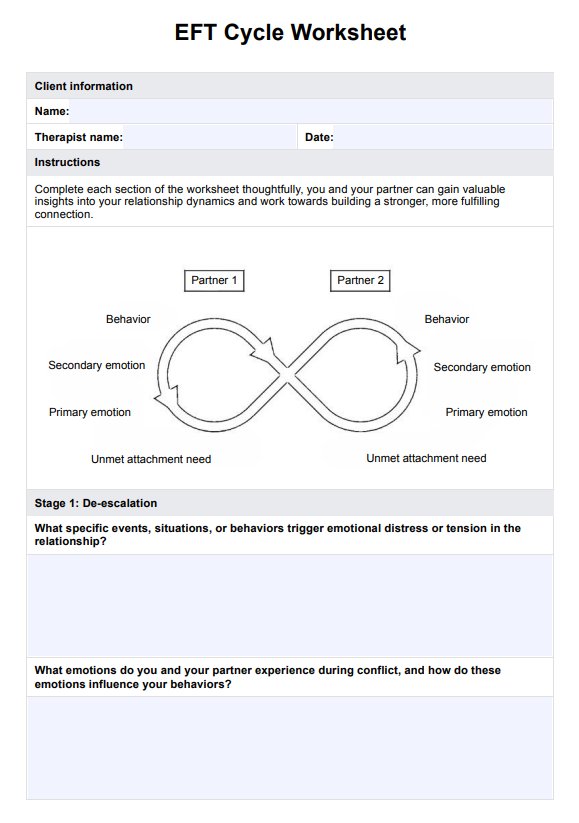Emotionally focused therapy (EFT) focuses on emotions and attachment within relationships. Unlike other therapies targeting individual symptoms or behaviors, EFT aims to create secure emotional bonds between partners or families.

EFT Cycle Worksheet
Download a Free EFT Cycle Worksheet, a therapeutic resource to enhance emotional awareness in clients experiencing relationship difficulties.
EFT Cycle Worksheet Template
Commonly asked questions
The duration of emotionally focused therapy (EFT) can vary depending on the specific needs and goals of the individuals or couples involved. However, EFT is typically considered a relatively short-term therapy, typically taking between 8 and 20 sessions.
Yes, emotionally focused therapy (EFT) can be used effectively for individuals and couples. While EFT is often associated with couples therapy, it can also be adapted for use with individuals who are experiencing difficulties in their relationships or struggling with attachment-related issues.
EHR and practice management software
Get started for free
*No credit card required
Free
$0/usd
Unlimited clients
Telehealth
1GB of storage
Client portal text
Automated billing and online payments











